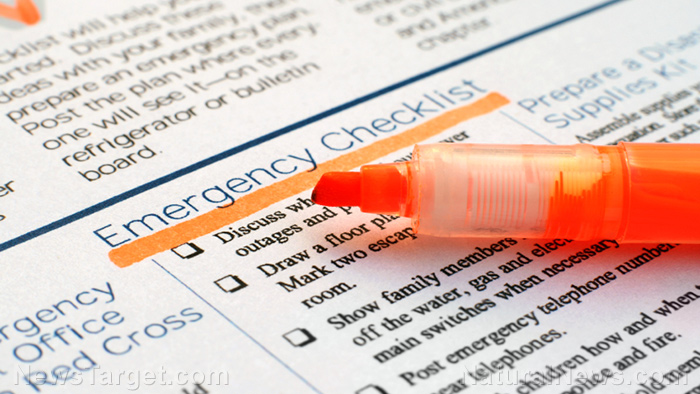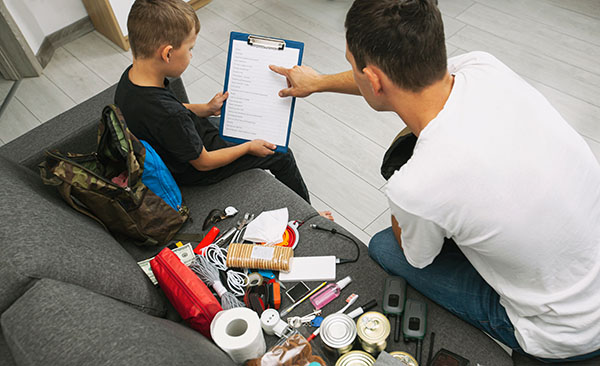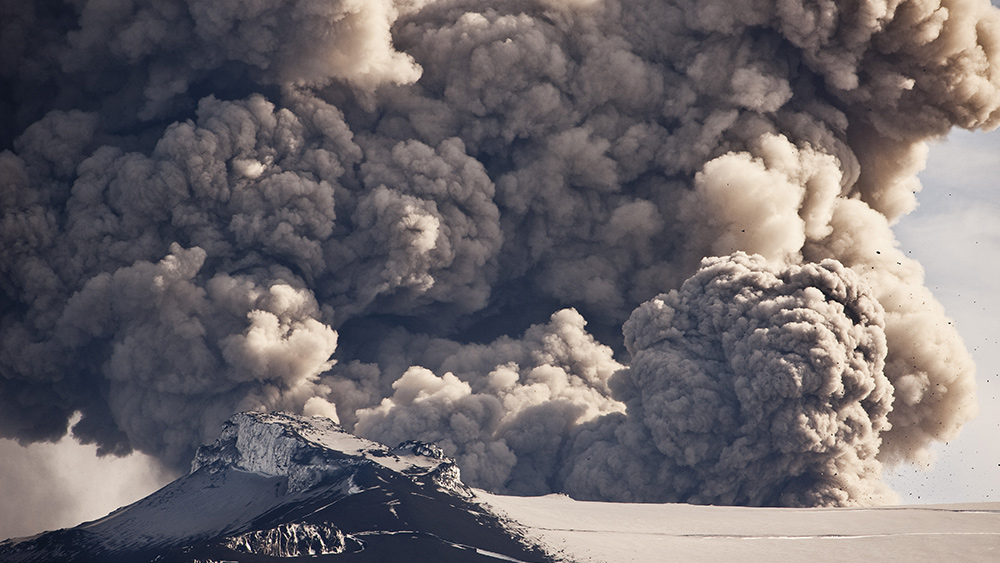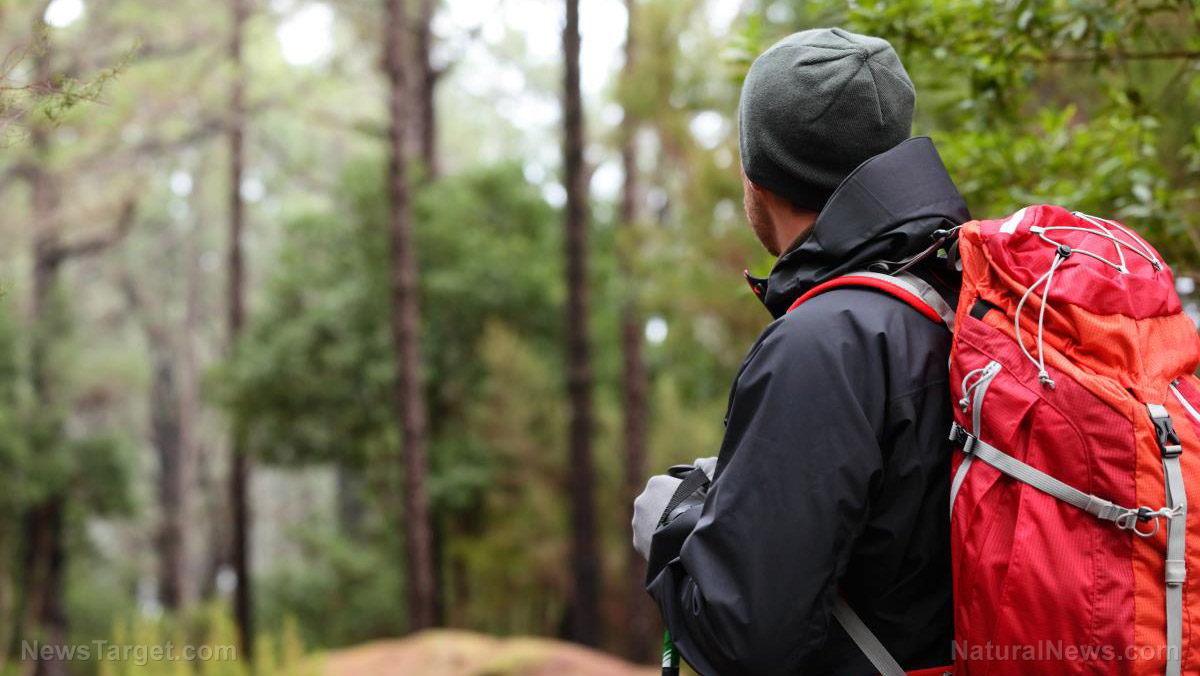
Preppers know that it's important to stock up on food and water before a power outage. Since power outages can happen without warning, you need to know what to do before, during and after the power goes out in your neighborhood. (h/t to PreparednessAdvice.com)
Stock up on food, water and emergency supplies
Power outages are often unexpected, so you need to prepare before they happen. As a prepper, this means having basic emergency supplies at home and in your car at all times.
Here are some things you may need during a power outage:
- Batteries
- A battery-powered radio
- Bottled water for the whole family
- Candles and matches
- Car charger for phones and a portable charger
- Cooler and ice
- Emergency contact information
- Extra cash
- A first aid kit
- Flashlights
- Food thermometer
- Non-perishable food items
Here's a list of dishes you can prepare even if you don't have electricity:
- Bread, butter and jam
- Burrito bowls
- Granola bowl
- Leafy greens salad with carrots, onions, tomatoes and other vegetables
- Lettuce wraps (Prepare lettuce with chicken or tuna salad.)
- Overnight oats
- Rice paper spring rolls
- Tacos
- Tuna and bean salad
- Veggie noodles (Use a spiralizer to turn vegetables like carrots or zucchini into "noodles.")
- Whole grain cereals with shelf-stable milk
If you receive a warning about an upcoming power outage, like a weather-related outage, cook some food beforehand like bacon, eggs and rice. Cooked eggs will last longer if they're not peeled.
Prep for children, family members with medical conditions and pets
If you are caring for a baby or very young children, stock up on baby formula, baby food and snacks so they also have enough to eat. You will also need books and toys to keep children entertained when the power goes out.
Some family members may require specific medical devices and supplies during power outages along with other items often included in an emergency aid kit, like oxygen tanks or a medical device that requires power.
If someone in your family needs any type of life-sustaining equipment, make sure to discuss your needs with your doctor and family members. You also need to have a plan in place for how you will get medication or emergency medical treatment during a power outage. (Related: Prepper must-haves: What to stock up on before a summer or winter power outage.)
If someone in your family needs electricity to operate a wheelchair lift or other mobility device, have a backup plan for how they will get around when there isn't any power. You should also have a plan for charging the battery of their equipment when the power returns.
If you have pets, stock up on pet food, treats and pet toys.
What to do after a power outage
After the power goes out, you need to take some basic safety precautions.
Here are some things you need to do after the lights go out in your neighborhood:
- Keep refrigerator and freezer doors closed. This helps keep the food cold and fresh for longer. Leave a thermometer in your fridge and freezer to keep track of the temperature so food stays fresh after an outage.
- Turn off or disconnect any electrical equipment you were using when the power went out. Check sensitive electronics like computers and televisions to avoid damage from voltage surges.
- Report power outages immediately. If you lose power, report it to your local utility company so they can easily track and fix the problem.
- If you have a generator for backup power, learn how to use it properly. Don't run a generator indoors or in an enclosed space, like your garage. Keep the generator away from any open windows or doors, especially during long-term power outages.
- Avoid using items that produce carbon monoxide like camp stoves, grills, or other outdoor cooking devices inside the house to prevent carbon monoxide poisoning.
- Be careful when using candles. Keep candles away from curtains, furniture and other flammable materials.
- If there is a downed power line in your neighborhood, don't touch or approach it. Call the local utility company immediately and wait until someone comes to fix it. Always stay away from any wires that are down, even if they don’t appear to be energized.
If you're experiencing a long-term power outage, especially one that goes on for several days or weeks, you may need to find alternate ways to get food, water and other supplies. The best thing to do is stock up supplies before SHTF so you have enough food to eat and water to drink.
What to do when the power comes back on
Once the power comes back on, here are some things you need to do:
- Turn on electrical equipment one at a time. This will help prevent voltage surges that can damage electronics like your TV or a desktop computer.
- Check the temperature of your refrigerator and freezer. If they are too warm, throw away any food that may have been exposed to unsafe temperatures.
- Restock any items that were used like non-perishable food items, water, candles, batteries or first aid materials.
- Take note of any downed power lines as you navigate your neighborhood.
More related stories:
LIGHTS OUT: 20 Things you need to do during a power outage.
Prepping 101: What to expect when the power goes out.
Prepper must-haves: What to stock up on before a summer or winter power outage.
Prepping tips: How to survive a long-term power outage.
Surviving a massive power outage.
Watch the video below to learn how to prepare a power outage kit.
This video is from Prepping101 channel on Brighteon.com.
Visit Preparedness.news for more tips on how to prep before a blackout.
Sources include:
Please contact us for more information.







































